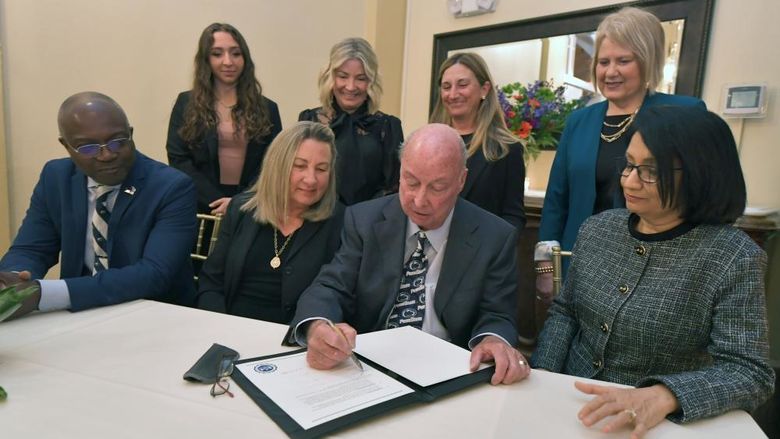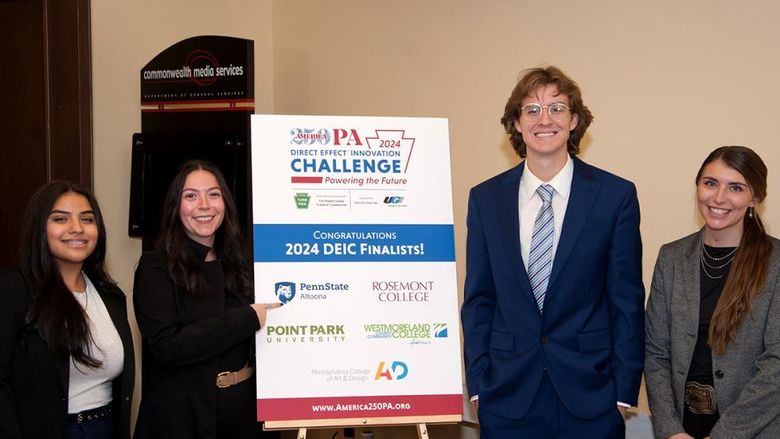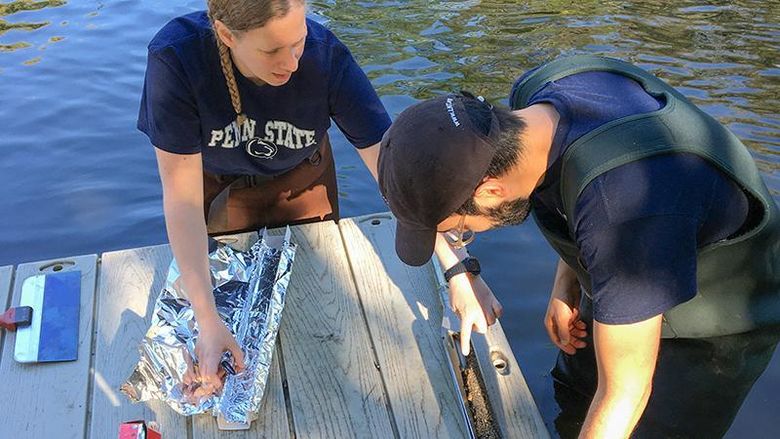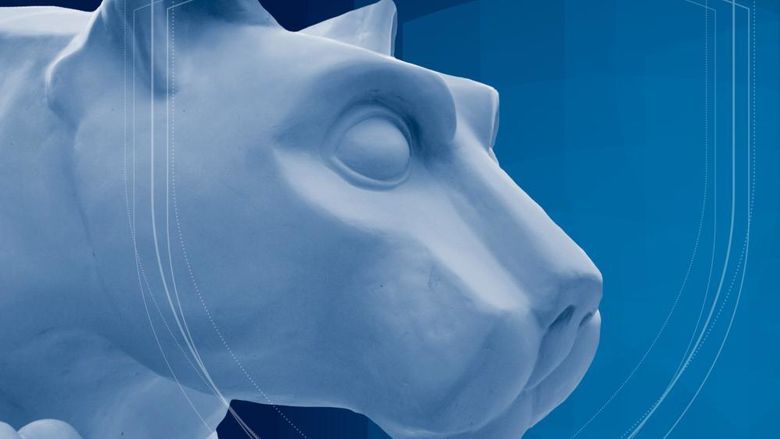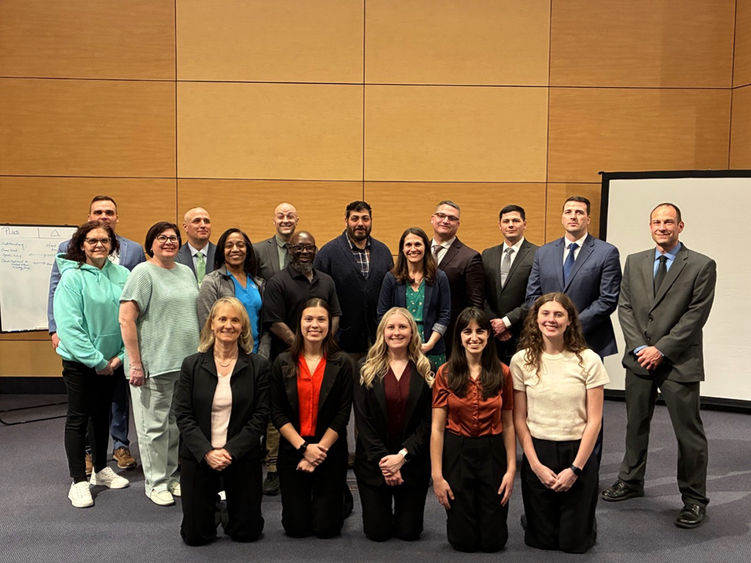
Penn State Altoona students Ally Black (first row, second from left), Devlin Glenn (first row, third from left), Abigail Hayes (first row, fourth from left), and Katelyn Kurtz (first row, fifth from left) join their mentor Dr. Nathan E. Kruis, (last row, first from left) and representatives from Penn State Health and the Pennsylvania State Police at the Keystone Model of Crisis Management workshop held at Penn State Great Valley on April 28, 2025.
MALVERN, Pa. — Four students from the Integrated Social Sciences Research Lab (ISSRL) at Penn State Altoona worked with faculty from the Douglas W. Pollock Center at Penn State Harrisburg and representatives from the Pennsylvania State Police, Penn State Health and the Pennsylvania Psychiatric Institute to provide a free crisis management training workshop to first responders and community members.
The workshop was held at Penn State Great Valley on April 28 and featured the Keystone Model of Crisis Management, a modified version of training used at the Pennsylvania State Police Academy. Participants were taught crisis identification skills, effective de-escalation strategies and stabilization techniques that can be used in situations involving people with mental illness or behavioral disorders. The day-long training consisted of informational lectures, didactic sessions and hands-on exercises involving virtual and live simulations with role-players.
“This workshop was so amazing,” said lab member Katelyn Kurtz, a senior studying accounting. “I truly believe that the Keystone Model is valuable in teaching officers and community members how to properly handle mental health crisis situations. The lab’s research supports my belief.”
Students in the ISSRL help with registration at workshops and give out pre- and post-workshop surveys to participants. They then work with lab coordinators Nicholas Rowland, distinguished professor of sociology, and Nathan Kruiz, associate professor of criminal justice, to analyze data from those surveys. So far, they said, their work has demonstrated that this training improves confidence in crisis management.
The collaboration between the Pollock Center, Penn State Altoona, Penn State Health and the Pennsylvania State Police is consistent with the University’s mission as a land-grant institution. This is the third workshop that the collaboration has hosted at a Penn State campus. Funding is provided by the Douglas W. Pollock Center for Addiction Outreach and Research at Penn State Harrisburg. Additional workshops will be held at other Penn State campuses, and ISSRL members will continue to study the training.
“I am thankful to be a part of something so impactful,” said Devlin Glenn, a third-year student majoring in criminal justice. “These trainings have the potential to save lives and create safer communities. These are the types of training all me hope for a safer career law enforcement after college.”
The Integrated Social Science Research Lab is embedded in the criminal justice and sociology programs at Penn State Altoona. Coordinated by Kruis and Rowland, the ISSRL is made possible by Penn State Altoona's Division of Business, Health, Humanities, and Social Sciences, headed by Nicholas L. Pyeatt.
